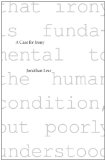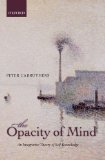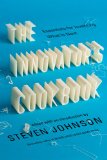October 16, 2011

Meditating Selflessly: Practical Neural Zen by James H. Austin (MIT Press, 2011)
(amazon.co.uk – 4 Nov)
Product description from the publisher:
This is not the usual kind of self-help book. Indeed, its major premise heeds a Zen master’s advice to be less self-centered. Yes, it is “one more book of words about Zen,” as the author concedes, yet this book explains meditative practices from the perspective of a “neural Zen.” The latest findings in brain research inform its suggestions. In Meditating Selflessly, James Austin–Zen practitioner, neurologist, and author of three acclaimed books on Zen and neuroscience–guides readers toward that open awareness already awaiting them on the cushion and in the natural world. Austin offers concrete advice–often in a simplified question-and-answer format–about different ways to meditate. He clarifies both the concentrative and receptive styles of meditation. Having emphasized that top-down and bottom-up forms of attention are complementary, he then explains how long-term meditators can become increasingly selfless when they cultivate both styles of attention in a balanced manner. This, Austin explains, is because our networks of attention are normally engaged in an inverse, reciprocal, seesaw relationship with the different regions that represent our autobiographical self. Drawing widely from the exciting new field of contemplative neuroscience, Austin helps resolve an ancient paradox: why both insight wisdom and selflessness arise simultaneously during enlightened states of consciousness.
Comments (0)
- consciousness,meditation,new books,self
October 12, 2011

A Case for Irony (Tanner Lectures on Human Values) by Jonathan Lear (Harvard University Press, 2011)
(amazon.co.uk – 11 Nov)
Product description from the publisher:
In 2001, Vanity Fair declared that the Age of Irony was over. Joan Didion has lamented that the United States in the era of Barack Obama has become an “irony-free zone.” Jonathan Lear in his 2006 book Radical Hope looked into America’s heart to ask how might we dispose ourselves if we came to feel our way of life was coming to an end. Here, he mobilizes a squad of philosophers and a psychoanalyst to once again forge a radical way forward, by arguing that no genuinely human life is possible without irony.
Becoming human should not be taken for granted, Lear writes. It is something we accomplish, something we get the hang of, and like Kierkegaard and Plato, Lear claims that irony is one of the essential tools we use to do this. For Lear and the participants in his Socratic dialogue, irony is not about being cool and detached like a player in a Woody Allen film. That, as Johannes Climacus, one of Kierkegaard’s pseudonymous authors, puts it, “is something only assistant professors assume.” Instead, it is a renewed commitment to living seriously, to experiencing every disruption that shakes us out of our habitual ways of tuning out of life, with all its vicissitudes. While many over the centuries have argued differently, Lear claims that our feelings and desires tend toward order, a structure that irony shakes us into seeing. Lear’s exchanges with his interlocutors strengthen his claims, while his experiences as a practicing psychoanalyst bring an emotionally gripping dimension to what is at stake—the psychic costs and benefits of living with irony.
Google Books preview:
Comments (0)
- new books,psychology
October 7, 2011

Books: A Living History by Martyn Lyons (J Paul Getty Museum) – 170 color and 50 b/w illustrations
(amazon.co.uk)
Product description from the publisher:
From the first scribbling on papyrus to the emergence of the e-book, this wide-ranging overview of the history of the book provides a fascinating look at one of the most efficient, versatile, and enduring technologies ever developed. The author traces the evolution of the book from the rarefied world of the hand-copied and illuminated volume in ancient and medieval times, through the revolutionary impact of Gutenberg’s invention of the printing press, to the rise of a publishing culture in the nineteenth and twentieth centuries, and the subsequent impact of new technologies on this culture.
Many of the great individual titles of the past two millennia are discussed as well as the range of book types and formats that have emerged in the last few hundred years, from serial and dime novels to paperbacks, children’s books, and Japanese manga. The volume ends with a discussion of the digital revolution in book production and distribution and the ramifications for book lovers, who can’t help but wonder whether the book will thrive—or even survive—in a form they recognize.
Comments (2)
- culture,new books
October 6, 2011

The Opacity of Mind: An Integrative Theory of Self-Knowledge by Peter Carruthers (Oxford University Press, USA)
(amazon.co.uk)
Product description from the publisher:
It is widely believed that people have privileged and authoritative access to their own thoughts, and many theories have been proposed to explain this supposed fact. The Opacity of Mind challenges the consensus view and subjects the theories in question to critical scrutiny, while showing that they are not protected against the findings of cognitive science by belonging to a separate ‘explanatory space’. The book argues that our access to our own thoughts is almost always interpretive, grounded in perceptual awareness of our own circumstances and behavior, together with our own sensory imagery (including inner speech). In fact our access to our own thoughts is no different in principle from our access to the thoughts of other people, utilizing the conceptual and inferential resources of the same ‘mindreading’ faculty, and relying on many of the same sources of evidence. Peter Carruthers proposes and defends the Interpretive Sensory-Access (ISA) theory of self-knowledge. This is supported through comprehensive examination of many different types of evidence from across cognitive science, integrating a diverse set of findings into a single well-articulated theory. One outcome is that there are hardly any kinds of conscious thought. Another is that there is no such thing as conscious agency.
Written with Carruthers’ usual clarity and directness, this book will be essential reading for philosophers interested in self-knowledge, consciousness, and related areas of philosophy. It will also be of vital interest to cognitive scientists, since it casts the existing data in a new theoretical light. Moreover, the ISA theory makes many new predictions while also suggesting constraints and controls that should be placed on future experimental investigations of self-knowledge.
See also: Author’s website
Comments (0)
- cognitive science,consciousness,new books,philosophy of mind
October 5, 2011

The Innovator’s Cookbook: Essentials for Inventing What Is Next, edited by Steven Johnson (Riverhead Trade, 2011) has been issued in conjunction with the paperback edition of Where Good Ideas Come From: The Natural History of Innovation.
(kindle ed.), (amazon.co.uk)
Product description from the publisher:
Essential reading-and progressive thinking-on the subject of innovation, from the national bestselling author.
Steven Johnson, an acknowledged bestselling leader on the subject of innovation, gathers-for a foundational text on the subject of innovation-essays, interviews, and cutting-edge insights by such exciting field leaders as Peter Drucker, Richard Florida, Eric Von Hippel, Dean Keith Simonton, Arthur Koestler, John Seely Brown, and Marshall Berman. Johnson also provides new material from Marisa Mayer of Google, Twitter’s Biz Stone and Jack Dorsey, and Ray Ozzie, Microsoft’s former Chief Software Architect. With additional commentary by Johnson himself, this book reveals the innovation found in a wide range of fields, including science, technology, energy, transportation, education, art, and sociology, making it vital, fresh, and fascinating reading for our time, and for the future.
See also: Author’s website
Comments (0)
- culture,new books







